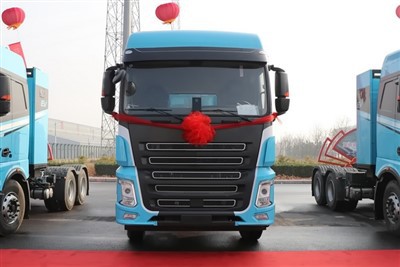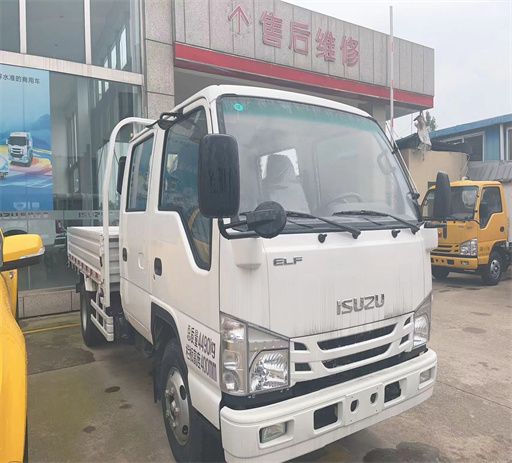Lorry Truck: The Comprehensive Guide to Understanding and Choosing the Right One

Introduction
Lorry trucks are an essential part of modern transport and logistics. These powerful vehicles are designed to haul large loads over various distances, making them crucial for businesses and industries worldwide. In this article, we will delve deep into the world of lorry trucks, covering their types, specifications, maintenance, and much more, ensuring you have all the information you need to make informed decisions whether you are buying, renting, or simply learning about them.
What is a Lorry Truck?
A lorry truck, commonly referred to as a truck or simply a lorry in some regions, is a motor vehicle designed primarily for transporting goods. Unlike smaller vehicles, lorries are built to carry heavier loads and can come in various configurations and sizes.
Types of Lorry Trucks
Lorry trucks can be classified into several categories based on their design and intended use. Here are the most common types:
1. Rigid Lorries
Rigid lorries have a fixed body and are typically used for short-haul transportation. They are versatile and can be used for a variety of cargo types.
2. Articulated Lorries
Articulated lorries consist of a towing unit and a trailer. They are more flexible and can carry larger loads, making them ideal for long-distance transport.
3. Flatbed Lorries
These trucks have an open trailer and are perfect for transporting oversized items. The lack of sides and roof allows for easy loading and unloading.
4. Tipper Lorries
Tipper lorries are designed for carrying loose materials such as sand, gravel, and demolition waste. They can tip their load out from the backside, simplifying the unloading process.
5. Refrigerated Lorries
Refrigerated lorries, often referred to as reefer trucks, are equipped with temperature-controlled units. This makes them suitable for transporting perishable goods like food and pharmaceuticals.
Key Specifications of Lorry Trucks
When considering a lorry truck, several specifications come into play:
| Specification | Description |
|---|---|
| Gross Vehicle Weight Rating (GVWR) | The maximum weight a vehicle is rated to safely carry. |
| Payload Capacity | The maximum weight the truck can carry excluding its own weight. |
| Engine Power | Measured in horsepower, dictates the truck’s ability to transport heavy weights effectively. |
| Fuel Type | Common types include diesel and gasoline; choice impacts efficiency and running costs. |
| Axle Configuration | Determines the number of wheels and load-bearing capacity. |
Choosing the Right Lorry Truck

Selecting the right lorry truck depends on factors such as the type of goods transported, distance, and budget. Consider these tips:
1. Assess Your Needs
What will you be transporting? Analyze the dimensions, weight, and nature (perishable, fragile, etc.) of your cargo.
2. Determine Usage
Will the lorry be used for local deliveries or long-haul routes? Rigid lorries are better for short distances, while articulated ones excel in long-distance transport.
3. Consider Fuel Efficiency
Choose a truck with better fuel efficiency to save on operational costs. Diesel engines typically offer more mileage than gasoline counterparts.
4. Evaluate Maintenance Costs
Understand the maintenance requirements of different trucks. Some models may require more regular service than others, incurring additional costs.
5. Review Insurance and Licensing Requirements
Check the regulations in your area regarding insurance and licensing to ensure compliance before making a purchase.
Benefits of Using Lorry Trucks for Transportation
Lorry trucks offer numerous advantages, making them a preferred choice for transporting goods:
1. High Load Capacity
Lorry trucks are designed to carry substantial amounts of cargo, which can enhance productivity for businesses.
2. Versatility
They can be adapted for various types of transport, including construction materials, perishable goods, and furniture.
3. Cost-effectiveness
Lorry trucks are often more economical for bulk transport than using multiple smaller vehicles.
4. Enhanced Safety Features
Modern lorry trucks are equipped with advanced safety features like ABS, EBS, and airbags, providing safe transport for both drivers and cargo.

Maintenance Tips for Lorry Trucks
Regular maintenance is key to ensuring the longevity and efficiency of lorry trucks. Here are some practical tips:
1. Regular Inspections
Conduct frequent inspections to identify wear and tear on tires, brakes, and other critical components.
2. Change Oil Regularly

Maintain the engine by changing the oil as recommended by the manufacturer to avoid excessive wear.
3. Monitor Fluid Levels
Check and refill essential fluids such as coolant, brake fluid, and transmission fluid regularly.
4. Service the Brake System
Inspect brake pads and discs frequently since this is a crucial safety aspect of your lorry truck.
Cost of Owning a Lorry Truck
The costs associated with owning a lorry truck can vary significantly based on several factors:
1. Purchase Price
The initial investment can range from $20,000 for a used lorry to over $150,000 for a new heavy-duty model.
2. Insurance Premiums
Insurance costs depend on the truck’s age, type, and usage, averaging between $1,000 and $3,500 annually.
3. Fuel Costs
Fuel consumption varies by model, but lorry trucks generally consume between 6 to 10 miles per gallon, impacting ongoing running costs.
4. Maintenance Costs
Budget for routine services, spare parts, and any unexpected repairs that may arise during operation.
Environmental Considerations
The transportation sector is a significant contributor to environmental pollution. Here are some strategies to minimize impacts:
1. Choose Fuel-efficient Models
Selecting modern lorry trucks with better fuel efficiency can significantly reduce emissions.
2. Embrace Electric or Hybrid Options
Consider electric or hybrid lorries that produce fewer pollutants than traditional diesel trucks.
3. Optimize Routes
Using route optimization software can help reduce the distance traveled and lower fuel consumption.
Future Trends in Lorry Trucking
The trucking industry is evolving rapidly. Here are some trends to watch:
1. Automation and Autonomous Trucks
Automation is changing the landscape of trucking. Autonomous lorries are being tested and may revolutionize transport efficiency.
2. Advances in Alternative Fuels
Innovation in alternative fuels, such as hydrogen power, indicates a shift towards greener transportation solutions.
3. Digitalization
Digital tools for fleet management, tracking, and optimization are becoming essential in maximizing operational efficiency.
FAQs about Lorry Trucks
1. How much can a lorry truck carry?
Depending on the model, lorry trucks can carry anywhere from 7,000 to 50,000 pounds or more.
2. Are refrigerated lorry trucks more expensive?
Yes, refrigerated lorries generally have higher purchase and maintenance costs due to their specialized systems.
3. How often should I service my lorry truck?
It is recommended to perform a full service at least once a year, along with routine checks every few months, depending on usage.
4. Can I drive a lorry truck with a regular driver’s license?
In many regions, a Commercial Driver’s License (CDL) is required to drive larger lorries. Check local laws for specifics.
5. What are the legal weight limits for lorry trucks?
The legal weight limit varies by location but is generally around 80,000 pounds for a standard 18-wheeler in the U.S.
6. How do I choose the right lorry truck for my business?
Consider factors such as the type of cargo, distance of travel, budget, and specific operational needs to choose the right lorry truck.
